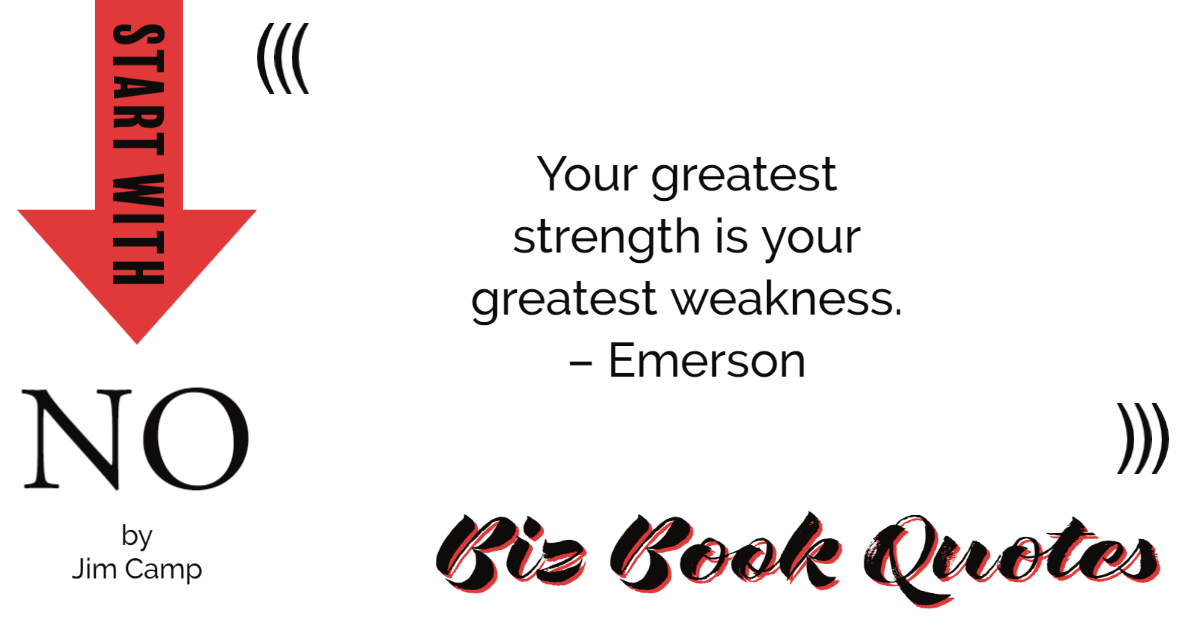 |
’Your greatest strength is your greatest weakness.’ – Emerson
|
178 |
 |
Great teams do not hold back with one another. They are unafraid to air their dirty laundry. They admit their mistakes, their weaknesses, and their concerns without fear of reprisal.
|
44 |
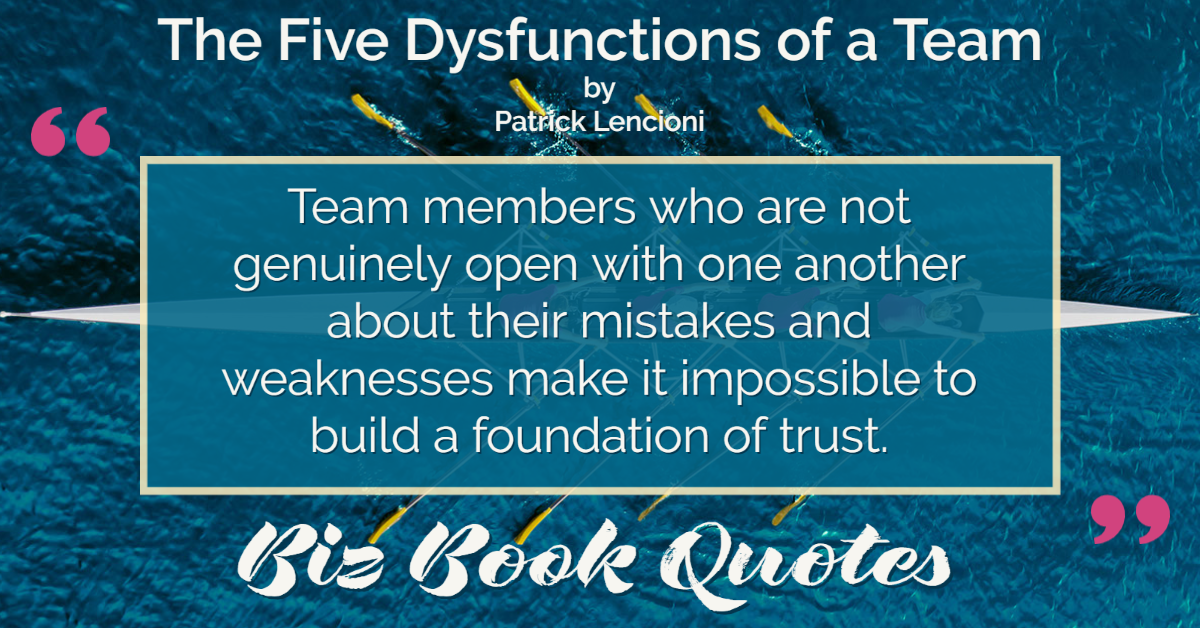 |
Team members who are not genuinely open with one another about their mistakes and weaknesses make it impossible to build a foundation of trust.
|
188 |
 |
…some of this comes down to our fragile egos. We’re driven to deny our weaknesses when we want to see ourselves in a positive light or paint a glowing picture of ourselves to others.
|
42 |
 |
The most effective leaders score high in both confidence and humility. Although they have faith in their strengths, they’re also keenly aware of their weaknesses.
|
48 |
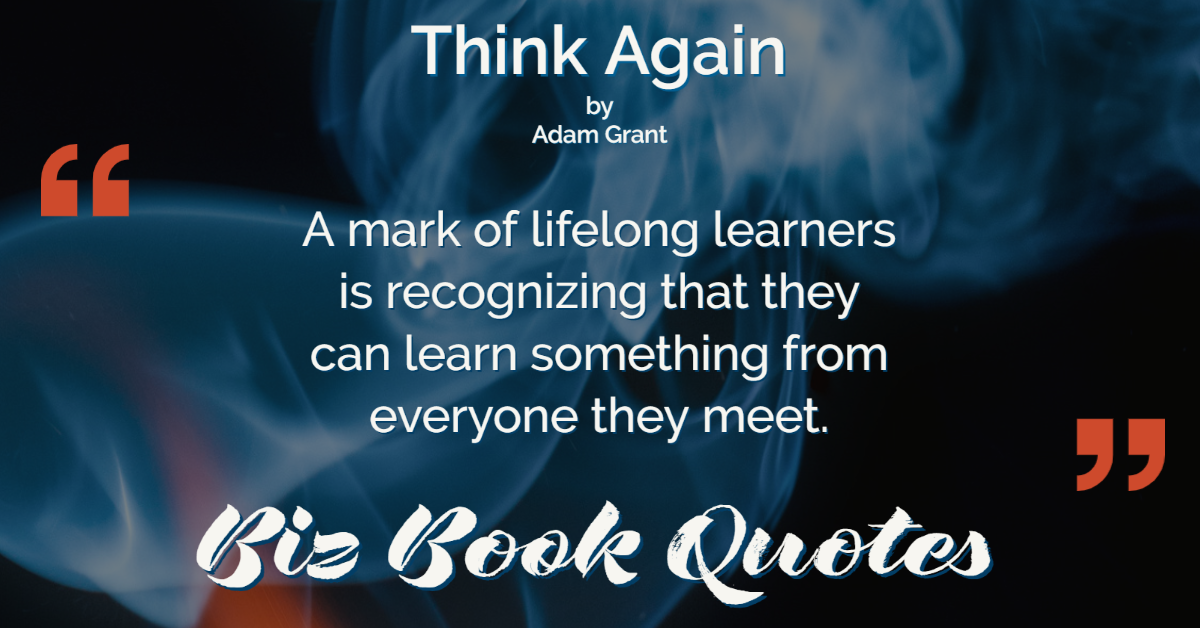 |
Arrogance leaves us blind to our weaknesses. Humility is a reflective lens: it helps us see them clearly. Confident humility is a corrective lens: it enables us to overcome those weaknesses.
|
54 |
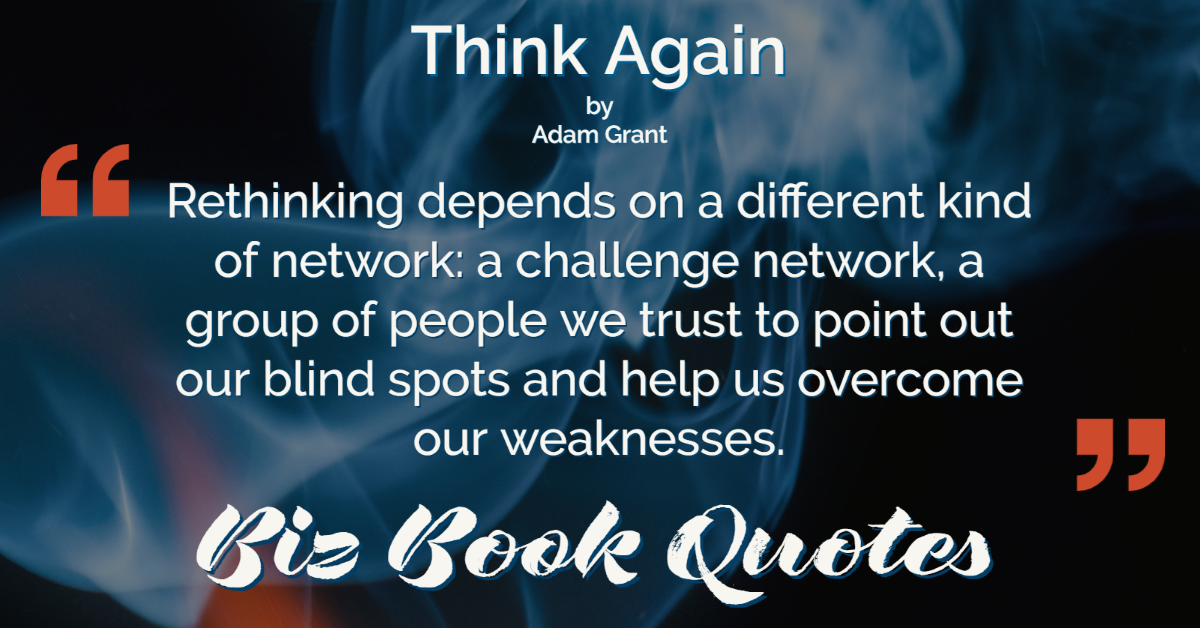 |
Rethinking depends on a different kind of network: a challenge network, a group of people we trust to point out our blind spots and help us overcome our weaknesses.
|
83 |
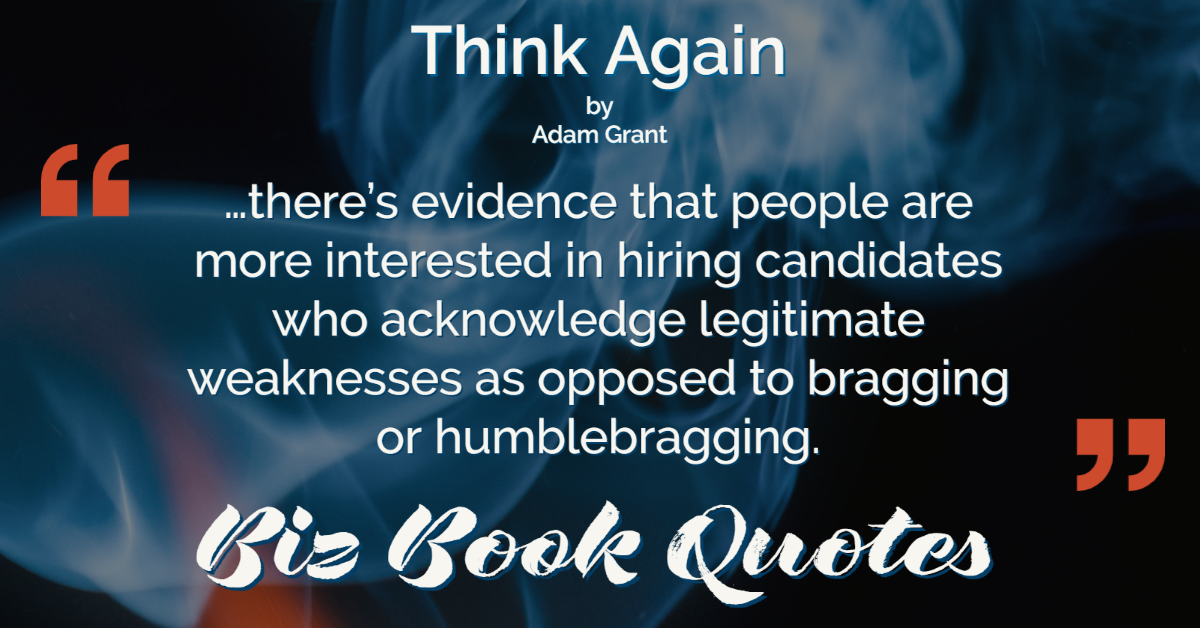 |
…there’s evidence that people are more interested in hiring candidates who acknowledge legitimate weaknesses as opposed to bragging or humblebragging.
|
119 |
 |
…in a wide range of fields… the connection between general intelligence and specific ability is weak and in some cases apparently nonexistent.
|
39 |
 |
Paradoxically, you strengthen your bargaining position by weakening your control over the situation.
|
142 |